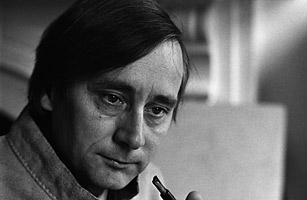
"People that you write about, you've got to love in a way, otherwise you won't get the truth," said writer Alan Sillitoe in 2008. Sillitoe, who died April 25 at 82, possessed a rare ability to identify the lovable qualities in characters his readers might shun in real life.
His two most famous creations were hard-drinking, womanizing factory worker Arthur Seaton, of the 1958 novel Saturday Night and Sunday Morning, and Colin Smith, the blue collar teenager of his 1959 short story "The Loneliness of the Long Distance Runner." Consigned to a reform school after a petty robbery, Smith is offered a chance at freedom if he gains glory for his school by winning a cross-country race. He comes close to doing so, only to demonstrate his contempt for authority by stopping just short of the finish line.
A similar instinct to challenge the stuffy status quo marked Sillitoe and other British writers of his generation — Kingsley Amis, John Braine, John Osborne, Harold Pinter and Arnold Wesker — who were collectively dubbed the Angry Young Men. In reality Sillitoe was not so much angry as lacking in the deference Britain expected of its lower orders. "I've always strongly believed in a meritocracy, where people make their mark through their talent alone," he once said. Sillitoe, the son of an illiterate and often abusive laborer, certainly achieved that.
—Catherine Mayer
This text originally appeared in the May 10, 2010 issue of TIME Magazine.